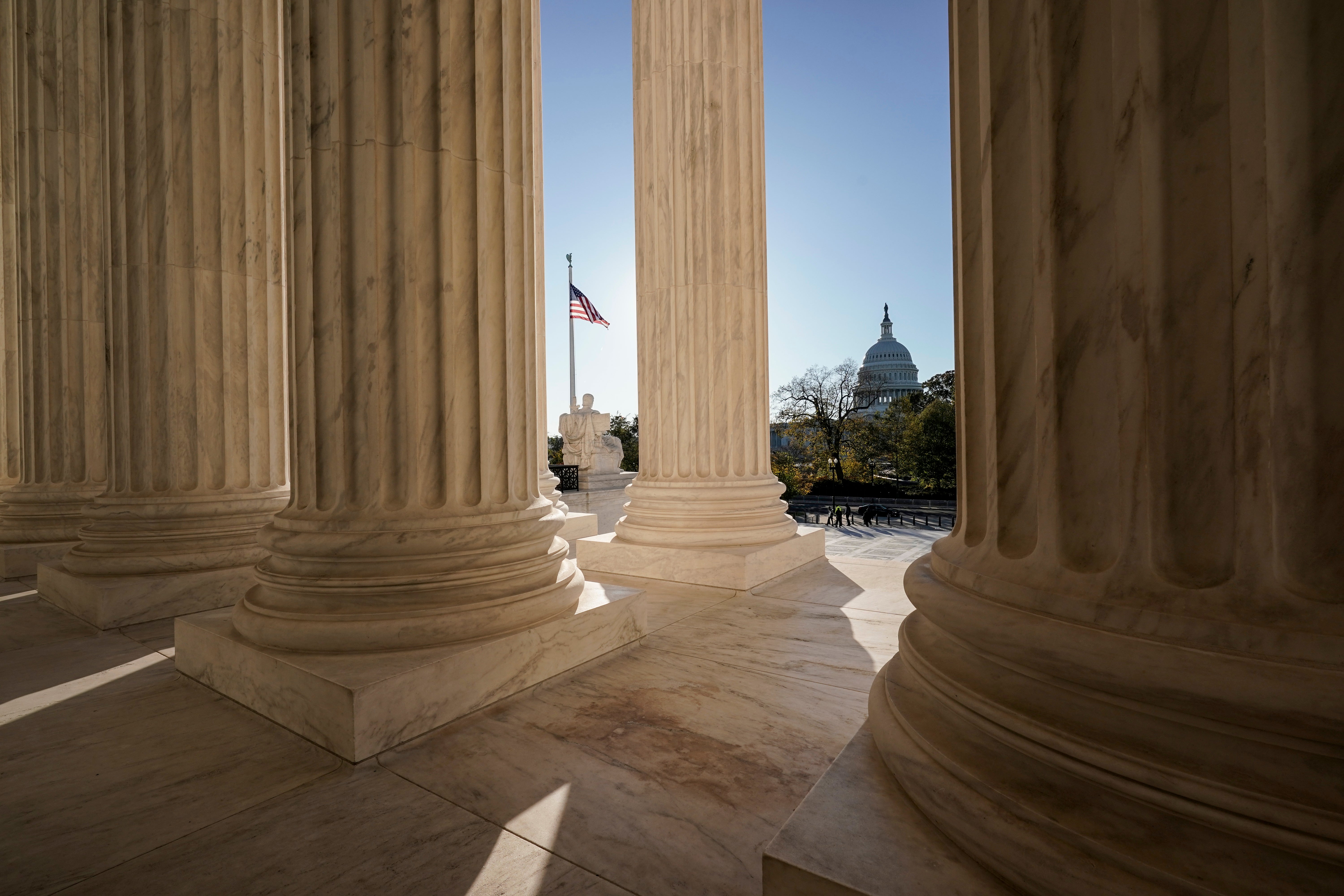The Supreme Court will hear a case with a lot of 'buts' & 'ifs' over the meaning of 'and'
How important can the meaning of a single word be

It's hard to imagine a less contentious or more innocent word than “and.”
But how to interpret that simple conjunction has prompted a complicated legal fight that lands in the Supreme Court on Oct. 2, the first day of its new term. What the justices decide could affect thousands of prison sentences each year.
Federal courts across the country disagree about whether the word, as it is used in a bipartisan 2018 criminal justice overhaul, indeed means “and” or whether it means “or.” Even an appellate panel that upheld a longer sentence called the structure of the provision “perplexing.”
The Supreme Court has stepped in to settle the dispute.
It's the kind of task the justices — and maybe their English teachers — love. The case requires the close parsing of a part of a federal statute, the First Step Act, which aimed in part to reduce mandatory minimum sentences and give judges more discretion.
In particular, the justices will be examining a so-called safety valve provision that is meant to spare low-level, nonviolent drug dealers who agree to plead guilty and cooperate with prosecutors from having to face often longer mandatory sentences.
It's much more than an exercise in diagramming a sentence. Nearly 6,000 people convicted of drug trafficking in the 2021 budget year alone are in the pool of those who might be eligible for reduced sentences, according to data compiled by the U.S. Sentencing Commission.
Overall, more than 10,000 people sentenced since the law took effect could be affected, according to Douglas Berman, an expert on sentencing at Ohio State University's law school.
The provision lists three criteria for allowing judges to forgo a mandatory minimum sentence that basically look to the severity of prior crimes. Congress did not make it easy by writing the section in the negative so that a judge can exercise discretion in sentencing if a defendant “does not have” three sorts of criminal history.
The question is how to determine eligibility for the safety valve — whether any of the conditions is enough to disqualify someone or whether it takes all three to be ineligible.
Lawyers for Mark Pulsifer, the inmate whose challenge the court will hear, say all three conditions must apply before the longer sentence can be imposed. The government says just one condition is enough to merit the mandatory minimum.
Pulsifer pleaded guilty to one count of distributing at least 50 grams of methamphetamine. Two of the three conditions applied to Pulsifer, and that was enough for the trial court and the St. Louis-based 8th U.S. Circuit Court of Appeals to make him eligible for a mandatory sentence of at least 15 years. He actually received a 13 1/2-year sentence for unrelated reasons.
Now 61, Pulsifer is not scheduled to be released from prison until 2031, according to federal Bureau of Prison records.
Appeals courts based in Chicago, Cincinnati and New Orleans also have ruled against defendants. Courts in Atlanta, Richmond, Virginia and San Francisco have ruled to broaden eligibility for the safety valve reductions.
In one case in Texas, Nonami Palomares, who was caught with heroin at the U.S.-Mexican border, was given a mandatory 10-year sentence because she had a previous 20-year-old drug offense. She might otherwise have had two years knocked off her sentence.
But in San Diego, Eric Lopez had about 45 pounds of meth on him when he was arrested qualified for the safety valve, despite his own earlier conviction, and avoided an additional year behind bars. U.S. District Judge James Lorenz wrote in Lopez's case that the law was ambiguous.
Both Palomares' and Lopez's cases could be affected by the Supreme Court's decision.
Linguists who specialize in the law submitted a brief in which they wrote that surveys they conducted found people thought the language was either ambiguous or should be read the way Pulsifer's legal team argues.
FAMM, which advocates against mandatory minimum sentences, has joined criminal defense lawyers and the American Civil Liberties Union in a filing that argues that mandatory sentences “are entirely at odds with what Congress sought to achieve in amending the safety-valve provision: that judges be allowed to use their discretion when sentencing low-level, nonviolent drug offenders.”
Berman said the language of the statute alone points to a broad reading that would favor defendants. “But the concern about the broad reading is that it basically covers everybody. I think it’s right that that wasn’t Congress’ intent,” Berman said, echoing arguments made by judges who sided with prosecutors.
On a court in which several justices across the ideological spectrum say they are guided by the words Congress chooses, with less regard for congressional intent, that might be enough to favor defendants. In addition, Justice Ketanji Brown Jackson's prior experience as a member of the U.S. Sentencing Commission also could be important to the court's resolution of the case.
The safety valve has been attractive both to prosecutors and defendants because it helps obtain convictions faster and allows for more nuanced prison terms, Berman said.
Congress could clarify the law, no matter which side wins. Even if Pulsifer prevails, judges will not be obligated to impose lower sentences, Berman said. They just will not be compelled to give mandatory ones.
A decision in Pulsifer v. U.S., 22-340, is expected by spring.
Bookmark popover
Removed from bookmarks